Learning Theory and Kernel Machines 16th Annual Conference on Computational Learning Theory and 7th Kernel Workshop, COLT/Kernel 2003, Washington, DC, USA, August 24-27, 2003, Proceedings
-
- Taschenbuch ausgewählt
- eBook
-
Sprache:Englisch
97,99 €
inkl. MwSt,
Lieferung nach Hause
Beschreibung
Details
Einband
Taschenbuch
Erscheinungsdatum
11.08.2003
Herausgeber
Bernhard Schölkopf + weitereVerlag
Springer BerlinSeitenzahl
754
Maße (L/B/H)
23,5/15,5/4,1 cm
Gewicht
2330 g
Auflage
2003
Sprache
Englisch
ISBN
978-3-540-40720-1
Target Area: Computational Game Theory.- Tutorial: Learning Topics in Game-Theoretic Decision Making.- A General Class of No-Regret Learning Algorithms and Game-Theoretic Equilibria.- Preference Elicitation and Query Learning.- Efficient Algorithms for Online Decision Problems.- Positive Definite Rational Kernels.- Bhattacharyya and Expected Likelihood Kernels.- Maximal Margin Classification for Metric Spaces.- Maximum Margin Algorithms with Boolean Kernels.- Knowledge-Based Nonlinear Kernel Classifiers.- Fast Kernels for Inexact String Matching.- On Graph Kernels: Hardness Results and Efficient Alternatives.- Kernels and Regularization on Graphs.- Data-Dependent Bounds for Multi-category Classification Based on Convex Losses.- Poster Session 1.- Comparing Clusterings by the Variation of Information.- Multiplicative Updates for Large Margin Classifiers.- Simplified PAC-Bayesian Margin Bounds.- Sparse Kernel Partial Least Squares Regression.- Sparse Probability Regression by Label Partitioning.- Learning with Rigorous Support Vector Machines.- Robust Regression by Boosting the Median.- Boosting with Diverse Base Classifiers.- Reducing Kernel Matrix Diagonal Dominance Using Semi-definite Programming.- Optimal Rates of Aggregation.- Distance-Based Classification with Lipschitz Functions.- Random Subclass Bounds.- PAC-MDL Bounds.- Universal Well-Calibrated Algorithm for On-Line Classification.- Learning Probabilistic Linear-Threshold Classifiers via Selective Sampling.- Learning Algorithms for Enclosing Points in Bregmanian Spheres.- Internal Regret in On-Line Portfolio Selection.- Lower Bounds on the Sample Complexity of Exploration in the Multi-armed Bandit Problem.- Smooth ?-Insensitive Regression by Loss Symmetrization.- On Finding Large Conjunctive Clusters.- LearningArithmetic Circuits via Partial Derivatives.- Poster Session 2.- Using a Linear Fit to Determine Monotonicity Directions.- Generalization Bounds for Voting Classifiers Based on Sparsity and Clustering.- Sequence Prediction Based on Monotone Complexity.- How Many Strings Are Easy to Predict?.- Polynomial Certificates for Propositional Classes.- On-Line Learning with Imperfect Monitoring.- Exploiting Task Relatedness for Multiple Task Learning.- Approximate Equivalence of Markov Decision Processes.- An Information Theoretic Tradeoff between Complexity and Accuracy.- Learning Random Log-Depth Decision Trees under the Uniform Distribution.- Projective DNF Formulae and Their Revision.- Learning with Equivalence Constraints and the Relation to Multiclass Learning.- Target Area: Natural Language Processing.- Tutorial: Machine Learning Methods in Natural Language Processing.- Learning from Uncertain Data.- Learning and Parsing Stochastic Unification-Based Grammars.- Generality's Price.- On Learning to Coordinate.- Learning All Subfunctions of a Function.- When Is Small Beautiful?.- Learning a Function of r Relevant Variables.- Subspace Detection: A Robust Statistics Formulation.- How Fast Is k-Means?.- Universal Coding of Zipf Distributions.- An Open Problem Regarding the Convergence of Universal A Priori Probability.- Entropy Bounds for Restricted Convex Hulls.- Compressing to VC Dimension Many Points.
Weitere Bände von Lecture Notes in Artificial Intelligence
-
Innovative Concepts for Agent-Based Systems von Walt Truszkowski
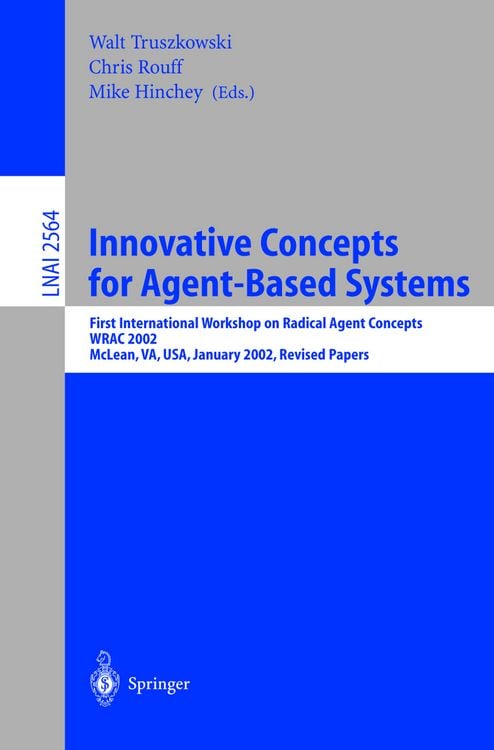
Walt Truszkowski
Innovative Concepts for Agent-Based SystemsBuch
49,99 €
-
Inductive Synthesis of Functional Programs von Ute Schmid
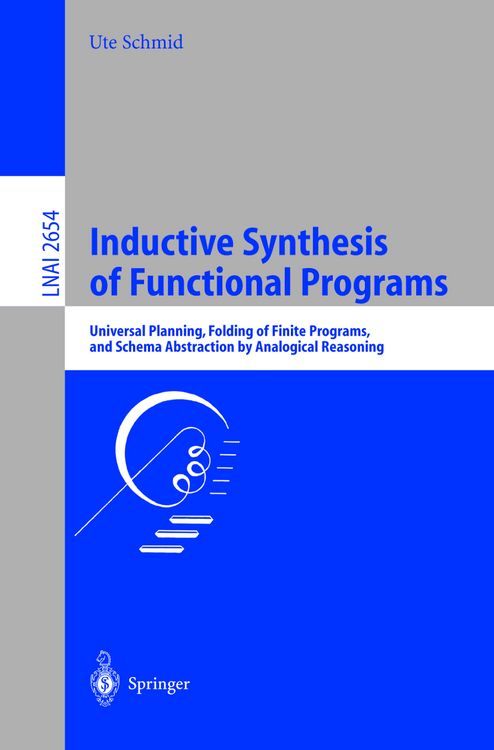
Ute Schmid
Inductive Synthesis of Functional ProgramsBuch
49,99 €
-
Cooperative Information Agents VII von Matthias Klusch
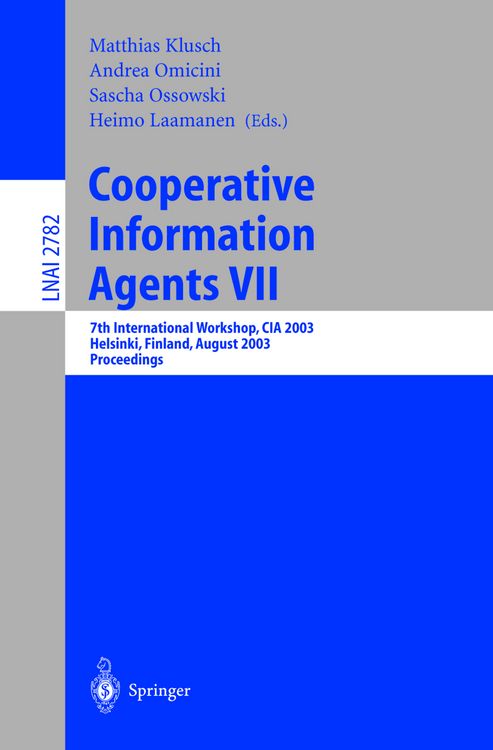
Matthias Klusch
Cooperative Information Agents VIIBuch
49,99 €
-
Learning Theory and Kernel Machines von Bernhard Schölkopf
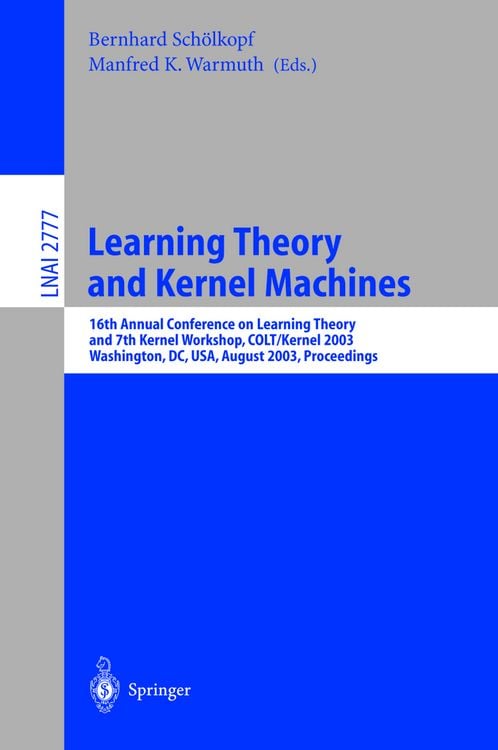
Bernhard Schölkopf
Learning Theory and Kernel MachinesBuch
97,99 €
-
RoboCup 2002: Robot Soccer World Cup VI von G. A. Kaminka
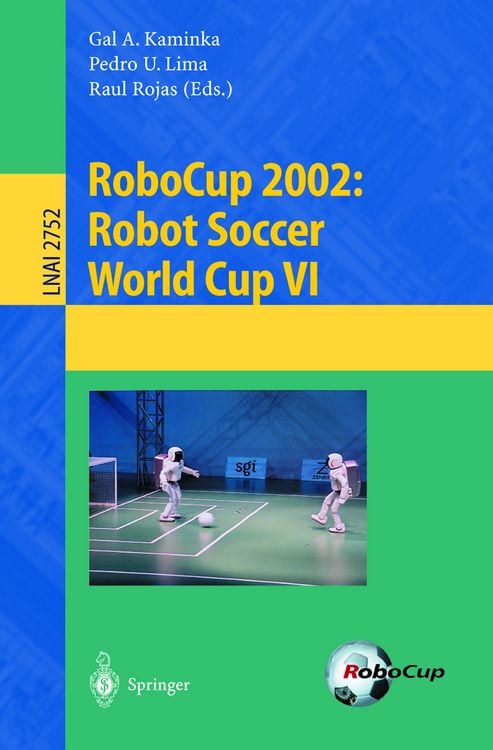
G. A. Kaminka
RoboCup 2002: Robot Soccer World Cup VIBuch
97,99 €
-
Text- and Speech-Triggered Information Access von S. Renals
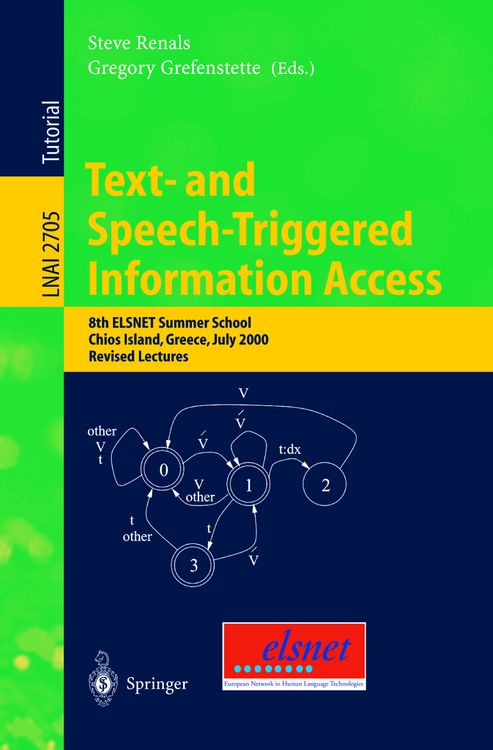
S. Renals
Text- and Speech-Triggered Information AccessBuch
49,99 €
-
Information Extraction in the Web Era von Maria Teresa Pazienza
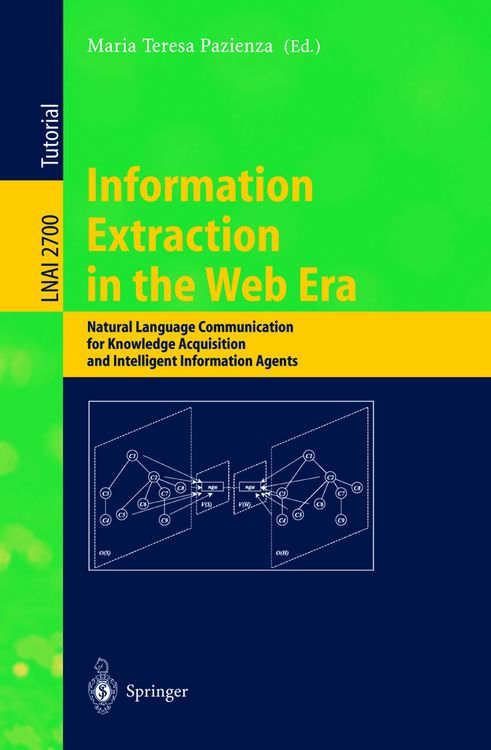
Maria Teresa Pazienza
Information Extraction in the Web EraBuch
39,99 €
-
Automated Deduction - CADE-19 von Franz Baader
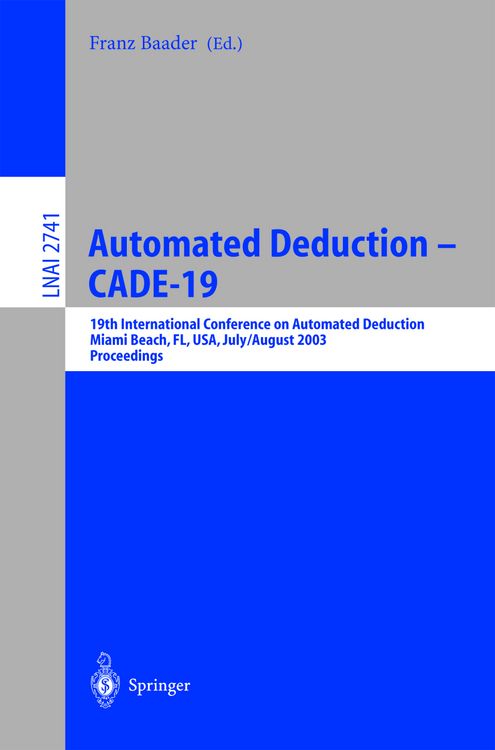
Franz Baader
Automated Deduction - CADE-19Buch
49,99 €
-
Conceptual Structures for Knowledge Creation and Communication von Aldo de Moor
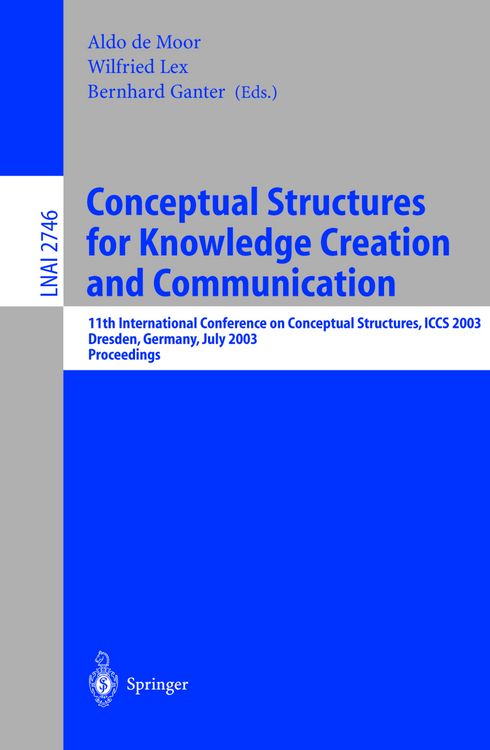
Aldo de Moor
Conceptual Structures for Knowledge Creation and CommunicationBuch
49,99 €
-
Communication in Multiagent Systems von Marc-Philippe Huget
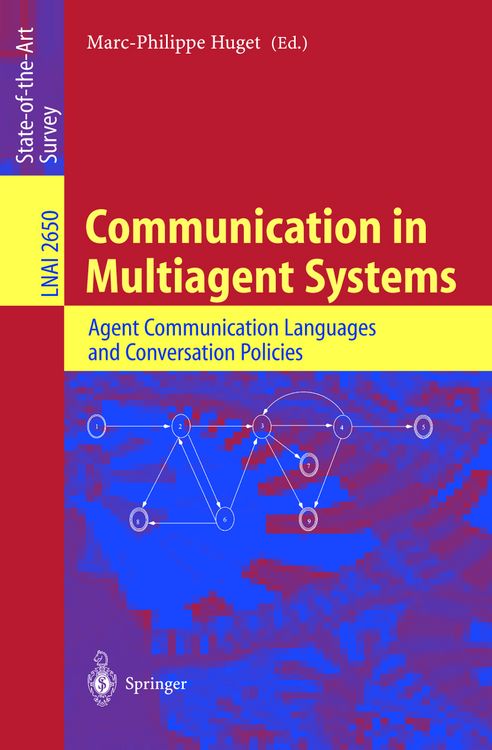
Marc-Philippe Huget
Communication in Multiagent SystemsBuch
49,99 €
-
Formal Approaches to Agent-Based Systems von James L. Rash
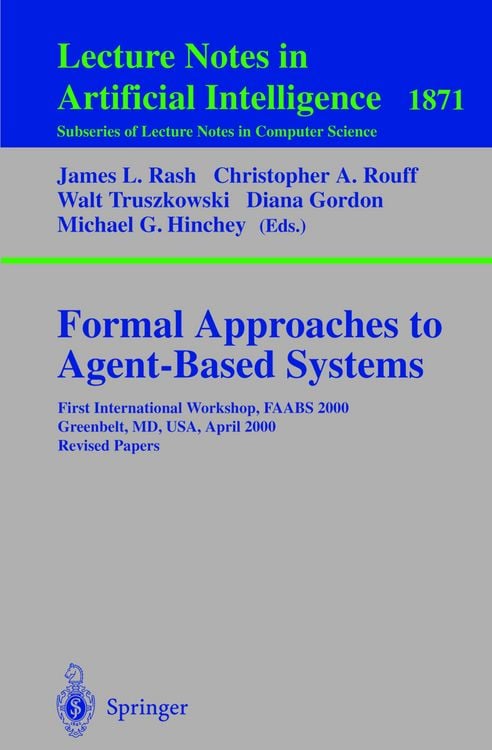
James L. Rash
Formal Approaches to Agent-Based SystemsBuch
49,99 €
-
Spatial Cognition III von Christian Freksa
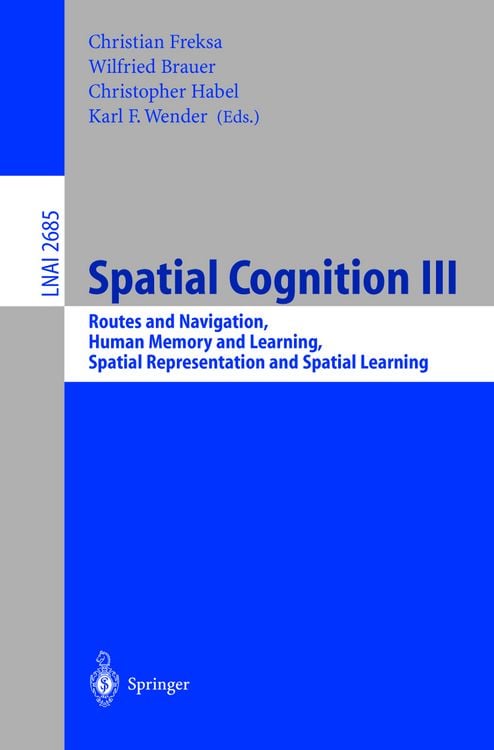
Christian Freksa
Spatial Cognition IIIBuch
49,99 €
Unsere Kundinnen und Kunden meinen
Verfassen Sie die erste Bewertung zu diesem Artikel
Helfen Sie anderen Kund*innen durch Ihre Meinung
Kurze Frage zu unserer Seite
Vielen Dank für dein Feedback
Wir nutzen dein Feedback, um unsere Produktseiten zu verbessern. Bitte habe Verständnis, dass wir dir keine Rückmeldung geben können. Falls du Kontakt mit uns aufnehmen möchtest, kannst du dich aber gerne an unseren Kund*innenservice wenden.
zum Kundenservice